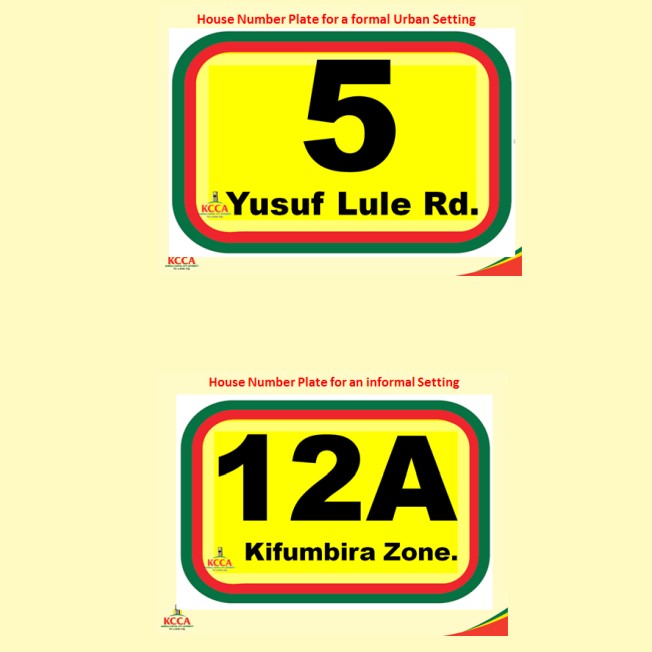Number plates for buildings: Will it reduce home insecurity?
The initiative involves assigning a unique number to each building - from apartments and shopping malls to mizigos (small rental houses) - to make destinations easier to locate.
Property owners are required to display the plates prominently on the building, fence, or gate. (Courtesy photos)
________________
The Kampala Capital City Authority (KCCA) recently rolled out over 12,500 number plates to be fixed on buildings, although this covers only a third of the 36,000 buildings in the city.
The initiative involves assigning a unique number to each building - from apartments and shopping malls to mizigos (small rental houses) - to make destinations easier to locate. The exercise has been completed in Kampala and is now being extended to Kira municipality.
“We are about to start the process, and I am sure that before the end of this year, we will digitise the system,” says Benon Yiga, the town clerk of Kira municipality.
According to KCCA spokesperson - Daniel Nuwabine, 3,000 number plates have already been distributed, though more are needed.
Officials from the Ministry of Lands, Housing and Urban Development say the programme will be expanded countrywide by the end of the year.
Benefits of numbering homes
Residents like businessman Bob Kabanda in Makindye division welcome the development.

“When my brother in Boston sends parcels, they are now delivered directly to my home. My housing number is even indicated on the parcel,” he says, noting that deliveries are now more secure and efficient.
A KCCA official explains that house numbers follow a structured pattern, with odd numbers on one side of the road and even numbers on the other. Only buildings visible from the roadway will be issued number plates measuring 375mm x 375mm.
Boost for real estate and tax collection
Real estate dealer Ramathan Mulondo, a real estate manager, believes that the system will help identify vacant houses and improve navigation.
“Before this, landlords gave directions using trees and swamps. With house numbers, it will be easier to find your way and check ownership quickly,” he says.
Mulondo adds that digitisation will prevent property fraud by ensuring ownership changes are recorded with KCCA or other urban authorities.
Muhammad Nsereko, a construction expert says the system will broaden the tax base and make it harder for landlords to evade property rates.
KCCA Deputy Executive Director Benon Kigenyi agrees, noting that house-numbering and street naming will help streamline local revenue collection and eliminate cases of double taxation.
Improved navigation and emergency response
Ugandan cities have long struggled with navigation.
“Previously, people directed friends and relatives using landmarks like anthills,” says Nuwabine.
“Now, all city roads - tarmac or murram - are named with yellow plates, and all properties are mapped under the Geographic Information System (GIS).”
Nsereko says the system will enable the Police, firefighters, and paramedics to respond faster in emergencies. It will also help utility providers like UMEME and plumbers trace service points more efficiently, reducing operational costs.
Enhancing security and property value
Mulondo adds that numbered buildings project responsibility and professionalism.
“Tenants and clients will feel more confident renting or visiting such premises,” he says. He further argues that numbering will improve community security: “Many Ugandans rent homes where even the LC leaders don’t know them. With house numbers, local authorities will easily identify residents and monitor their activities.”
Mandatory requirement
Fixing number plates on residential and commercial buildings is mandatory under the Local Government Act and the KCCA Act. Property owners are required to display the plates prominently on the building, fence, or gate.
Yiga confirms that the plates will eventually be digitised to ease property tracing and revenue collection.
“Owners will have no excuse for avoiding taxes while demanding services,” he notes.